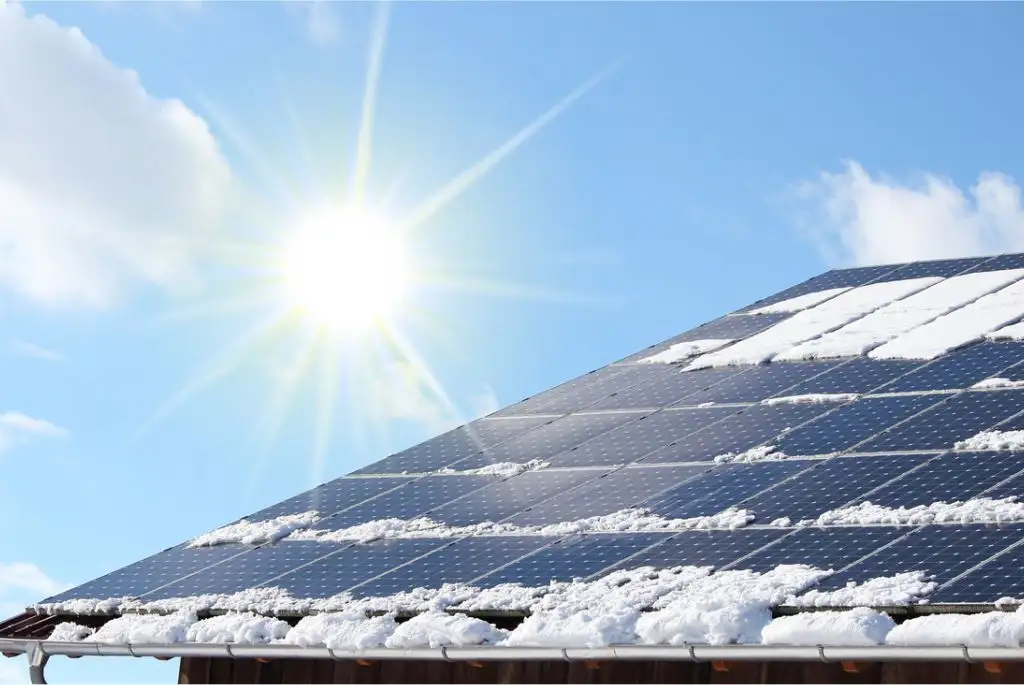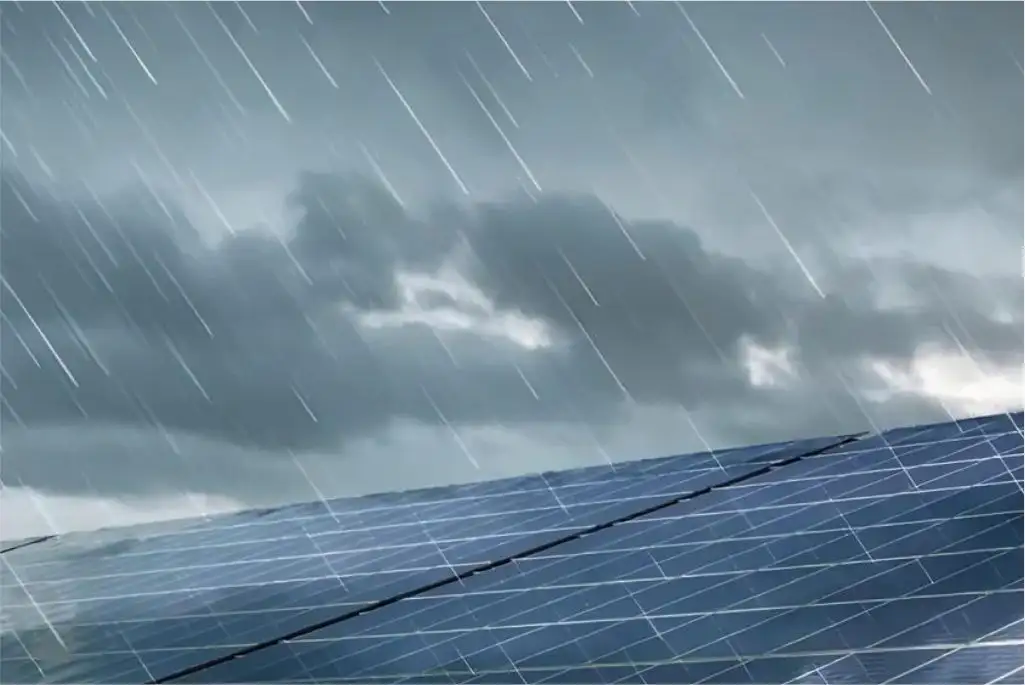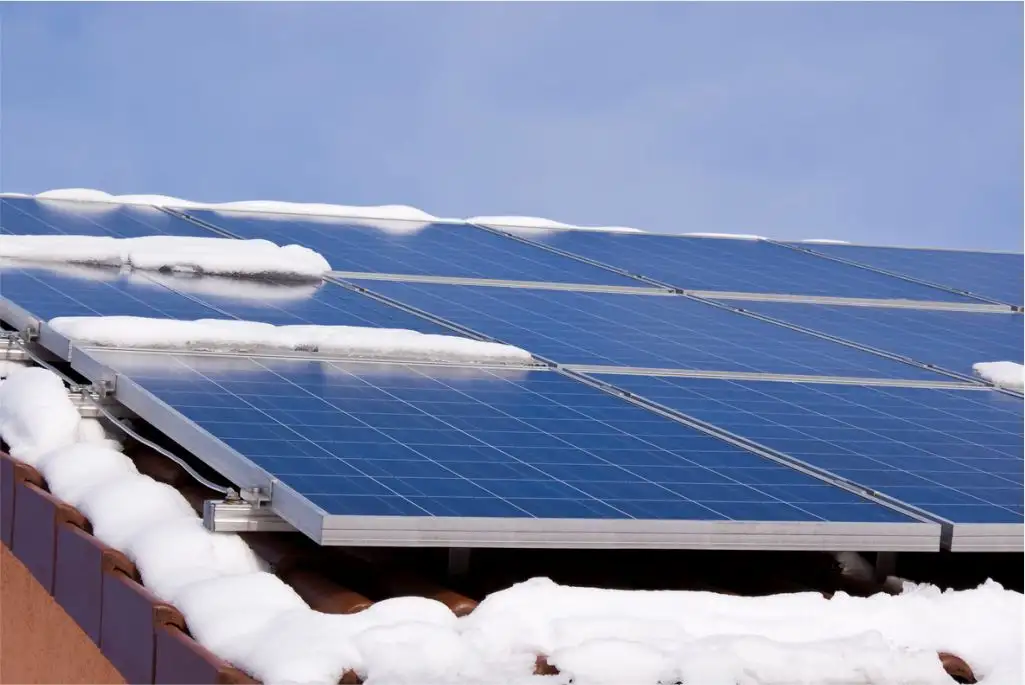Do Solar Panels Work in Winter?
Imagine waking up on a crisp winter morning, the sun casting a soft golden light across your rooftop. Despite the chill in the air, your solar panels are quietly and efficiently powering your home. It’s a common misconception that solar energy only works under the blazing sun of summer.
But here’s the surprising truth — solar panels work in winter too, and often more efficiently than people expect. Let’s explore how this technology performs during Pakistan’s colder months and why winter might actually be a smart time to harness solar energy.

How Solar Panels Work: It’s All About the Light, Not the Heat
Many people assume solar panels need warmth to function. In reality, solar panels in winter Pakistan operate by absorbing sunlight, not heat. The photovoltaic (PV) cells in a solar panel convert sunlight directly into electricity, meaning even a cool, sunny day can generate substantial power.

In fact, solar panels tend to perform best around 25°C, and when temperatures rise too much in summer, efficiency can slightly drop. So cooler weather can actually help solar systems stay closer to their optimal performance levels.
Do Solar Panels Produce Electricity During Winter?
Yes, they do — and quite reliably. While winter days are shorter and receive fewer hours of sunlight, there is still enough solar exposure to generate meaningful energy. Even on cloudy or foggy days, sunlight penetrates the atmosphere and reaches your panels.
In cities like Lahore, Karachi, Islamabad, and Multan, solar energy efficiency in cold weather is maintained thanks to consistent sunlight during winter. In areas like Islamabad, where winter temperatures are lower and snowfall is possible, solar panels still function effectively due to proper installation angles and their ability to absorb light even in cold climates.
What Happens to Solar Panels in Snow or Rain?
Though snowfall is limited to northern areas and elevated regions like Islamabad, it’s worth noting how solar panels handle it. Panels are typically installed at an angle, which helps snow slide off naturally when the sun shines. Also, the dark color of solar panel glass absorbs light quickly, warming up the surface and melting snow faster than you might expect.

When it rains, there’s no cause for concern either. Rain not only allows solar power during winter months to continue — it can actually clean the panels, removing dust and debris to improve performance.
Benefits of Solar Energy in Winter
Despite fewer sunlight hours, solar energy offers several advantages in the winter:
High Efficiency at Lower Temperatures
Colder air keeps the panels closer to ideal operating conditions, often improving their output compared to very hot summer days.
Net Metering Benefits
During sunny days, your system may produce more power than you use. Thanks to net metering in Pakistan, this excess energy can be credited back to your account, helping offset nighttime or low-sunlight usage.
The Albedo Effect
When surrounded by snow, solar panels may receive reflected sunlight, giving them an extra energy boost. This natural reflection can increase output by up to 20%, especially in snow-covered areas like Islamabad’s outskirts or northern regions.
How to Maximize Solar Panel Performance During Winter
To make the most of your system in winter, consider the following:
1. Adjust Panel Angle
Ensure your panels are positioned to capture the maximum amount of sunlight. A slightly steeper tilt in winter can help optimize absorption.
2. Keep Panels Clean
Dust, fallen leaves, or snow can block light. Gently clean your panels with a soft brush or cloth when needed.
3. Use Energy Storage
A battery system can store excess energy generated during the day for use at night or on especially cloudy days.
4. Trim Surrounding Trees
Ensure nearby trees or structures aren’t casting long winter shadows over your panels.
External guide on solar panel maintenance during winter.
Is Installing Solar Panels in Winter a Good Decision?
Absolutely. Many overlook winter as a time to go solar, but going solar in winter can offer real benefits:

- Cooler temperatures = better efficiency
- Immediate savings with net metering
- Year-round energy production begins sooner
- Lower solar panel prices are often available outside peak summer demand
Explore Solar Solutions with Implecso.
You’ll not only start saving on electricity sooner but also get a head start on energy independence before summer arrives.
Choosing the Right Solar System Size for Your Home
Selecting the ideal solar panel system depends on how much electricity your household uses each month. The easiest way to figure this out is by reviewing your recent electricity bills. Based on your average monthly usage, you can then match it with a solar system capacity that meets your energy needs efficiently. Here’s a helpful table to guide you in choosing the right system size according to your energy consumption.
| Monthly Electricity Usage (Units) | Suggested Solar System Size |
|---|---|
| 300–400 | 3 kW Solar System |
| 500–650 | 5 kW Solar System |
| 800–1,000 | 7 kW Solar System |
| 1,100–1,300 | 10 kW Solar System |
| 1,600–1,800 | 12–15 kW Solar System |
| 2,200–2,400 | 18–20 kW Solar System |
| 2,800–3,000 | 25 kW Solar System |
| 3,200–3,500 | 30 kW Solar System |
| 4,000+ | 35–50 kW Solar System |
Conclusion: Solar Power Works All Year Long
The myth that solar panels only work well in summer is just that — a myth. With solar energy efficiency in cold weather, Pakistan’s winter months still offer plenty of sunlight to power homes efficiently. Whether it’s a chilly day in Islamabad, a bright morning in Karachi, or a foggy afternoon in Lahore, solar panels in winter Pakistan are a smart, sustainable, and cost-effective solution.
If you’re ready to enjoy clean energy and long-term savings, there’s no need to wait. Solar power works all year — and your home can too.
